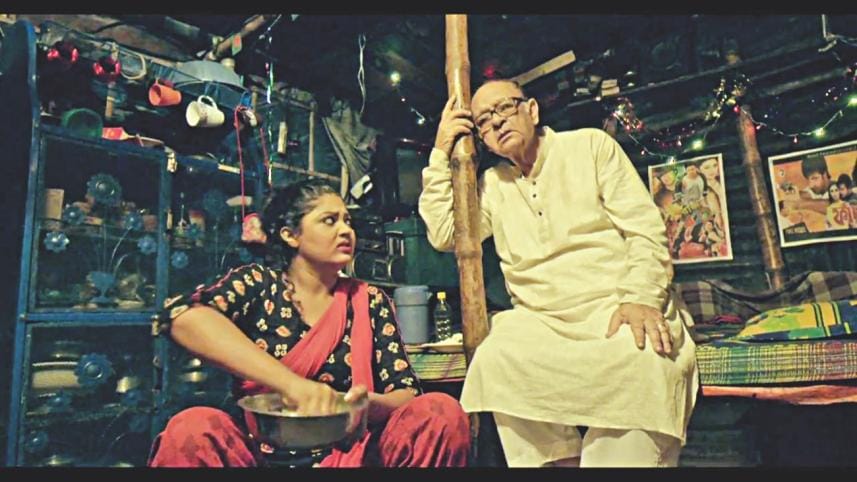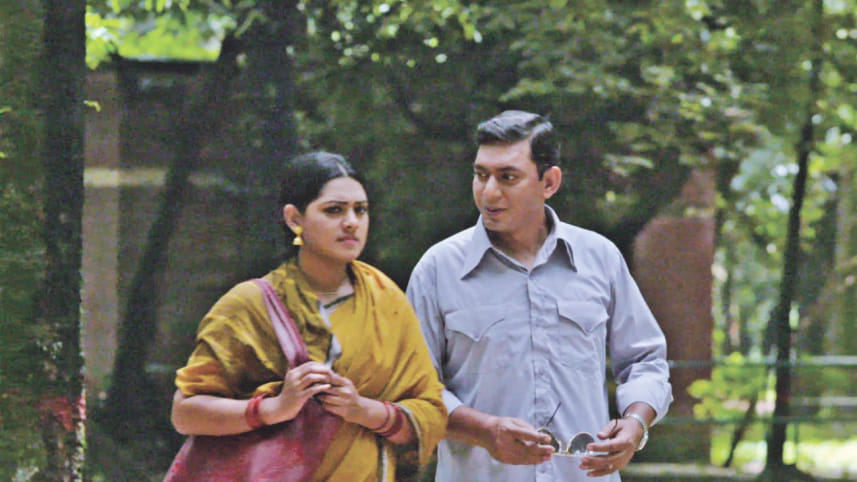The three stories that changed the narrative

We are a culture of stories, and for centuries, we have looked for occasions to speak of these tales. Be it the age-old geets about the romance between a soldier and a princess that are sung during weddings or the tales of sacrifice and martyrdom on which religious holidays are based, the people in this region have always been the best storytellers. While every occasion in Bangladesh calls for showcasing and reproduction of these age-old tales, the two Eid festivals every year also provide platforms for storytellers and young makers to showcase a fresh perspective.
After these tired and uninspired years, during which the large number of existing TV stations would showcase fictions and serials of sub-standard quality, the industry finally seems to be undergoing a positive change, as seen in the last couple of years. Very recently, stalwarts and like-minded corporates came together to create and deliver quality content, not only to get a hold of the younger Bangladeshi audience, but also to make a mark on the international platform. One such project that caught the attention of many is Bhai Brothers Express launched this year by the famous production house Chabial, for Eid al Adha. The project came up with tele-fictions made by storytellers and directors, both established and novice. However, three tele-fictions have been doing the rounds on social media, once they hit the online platforms after Channel i telecasted them.

Pata Jhorar Din, a story of a daughter looking for her lost father, is based on true events. An old father suffering from dementia loses his way and is seen wandering about the slums of Dhaka, taking refuge wherever he can—a railway platform, street corners etc. Played by the legendary actor Syed Hasan Imam, the character also meets strangers who give him refuge. The plight of the daughter, played by popular actor Rumana Rashid Ishita, gets worse as the nights go by and she prays for her father to be well and healthy. Written and directed by Redoan Rony, this is probably one of his best works. The story turns out to be much more than a daughter looking for her lost father. Rony successfully incorporates the basics of human nature, highlighting the complications of simple relationships and also the helplessness that the strongest of us sometimes go through.

Yet another tele-fiction from the project which caught the attention of many is Shonali Danar Chil, written and directed by Ashfaque Nipun. Based on the recent issue of question paper leaks, the story revolves around a middle class family, whose world suddenly turns upside down in a matter of days. The father, played by the famous actor Raisul Islam Asad, is a respected teacher known for his honesty in the locality. He and his wife, played by the talented Saberi Alam, dream of making their daughter, played by Mehazabien Chowdhury, a doctor. Surprisingly, the daughter, who is a brilliant student, fails her medical entrance examinations whereas her friend passes with flying colours, thanks to the leaked question papers that were provided to her. That is when desperation seeps in, and an otherwise happy and content family, also decides to follow the friend's family and buy leaked question papers the following year. What follows is heartbreaking—while the father is caught by the police, the daughter, to escape the humility and depression, kills herself.
The story is simple, yet filled with emotions that touch the heart of every Bangladeshi trying to survive the present times. The elements that are particularly touching include the uncut scene where the daughter feeds dinner to both her parents, who have otherwise refused to talk to each other or interact because of a fight, the love story that grows between the daughter and her school mate, played by Abir Mirza and, of course, the very end where Raisul Islam Asad breaks down at the sight of his lifeless daughter.

One of the most talked about tele-films this Eid is probably Ayesha, a story based on the book written by Anisul Haque. Directed by internationally acclaimed director Mostofa Sarwar Farooki, the film takes one back to the era of oppression and tyranny. A young wife played by the famous actor Tisha is seen wandering from one place to another looking for her husband, played by yet another talented actor, Chanchal Chowdhury. Made in two parts, the films speak of fear, of an invisible voice that seems to control the lives of innocent people and, of course, of dictatorship. But the story also depicts the rise of conscience—where a simple girl from the village eventually finds the strength and confidence within herself to speak for her husband, refusing to bow down and give up.
What is different about the three mentioned fictions and films is how each of them tried to change the conventional narrative, when it comes to storytelling and filmmaking in Bangladesh. Even though the stories were made for the television audience, with proper preparation and funding they could easily be made into stories for the silver screen. Also, each of the films spoke a common language that can be understood by Bangladeshis living anywhere in the world. Not only did they cover real landscapes and locations, they also spoke of the unique issues that we face in the many spheres of life—social, political, emotional etc.
Maybe it is this change in the otherwise common plot and the courage to bare one's heart out is what we need for the deshi audience to return to their local channels.
Elita Karim is Editor, Arts & Entertainment and Star Youth and tweets @elitakarim.




Comments